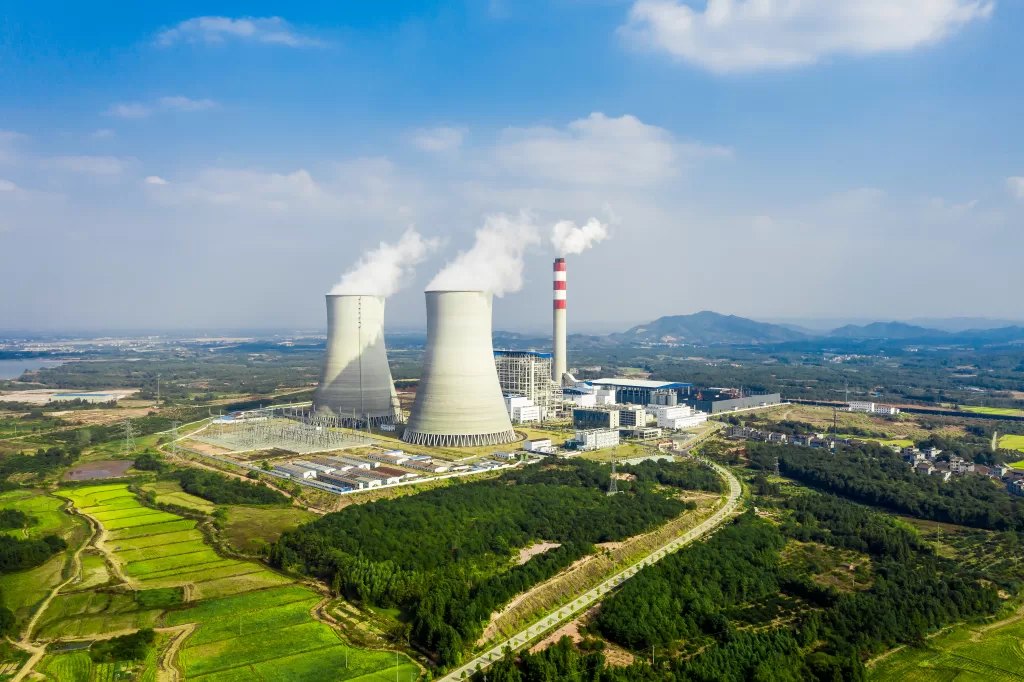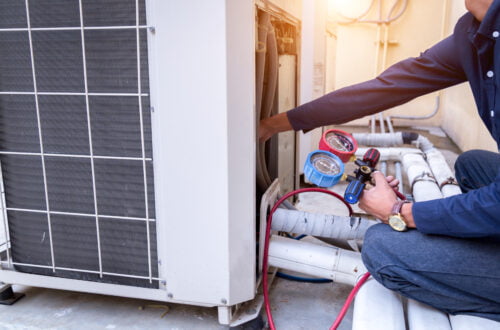Advantages to Nuclear Power
Nuclear power is a type of energy that comes from the splitting of atoms. In a nuclear power plant, this process happens inside a reactor. The energy released from nuclear fission is used to heat water, create steam, and spin a turbine. This turbine is connected to a generator, which produces electricity. Nuclear power is environmentally friendly because it does not produce greenhouse gases. It is also efficient and produces more energy than other sources of energy such as coal and oil. Nuclear power is a controversial topic, there are pros and cons for nuclear power. Some people believe that it is a safe and efficient source of energy, while others believe that it is too dangerous to be used. Despite the controversy, there are some advantages to nuclear power.

Nuclear Energy is Cleaner than Fossil Fuels
Though it often gets a bad rap, nuclear energy is actually one of the cleanest forms of energy generation. Unlike fossil fuels like coal and natural gas, nuclear power plants don’t produce harmful greenhouse gas emissions. In fact, nuclear energy is so efficient that it can help us meet our future energy needs without exacerbating climate change.
That’s not to say that nuclear power is perfect. The waste from nuclear plants can be highly radioactive and dangerous, which is why proper disposal is essential. But with the right safeguards in place, nuclear power can be a safe and clean way to generate the electricity we need.
Nuclear Energy is More Efficient than Fossil Fuels
Nuclear energy is more efficient than fossil fuels for a number of reasons.
- Nuclear plants can generate large amounts of electricity with very little pollution.
- They produce no greenhouse gases, and their emissions are low compared to other forms of energy generation.
- Nuclear plants have a high-capacity factor, meaning they produce a lot of electricity relative to the amount of fuel they consume.
- Nuclear reactors are very efficient at converting the energy in uranium into electricity, with most plants operating at around 33% efficiency.
- In contrast, coal-fired power plants have an efficiency of just 30%, while natural gas plants are even less efficient at about 20-30%.
- Even though nuclear plants require a large upfront investment, they offer lower operating costs and higher efficiency over the long term.
Overall, nuclear energy is more efficient than fossil fuels and is a cleaner source of energy. Nuclear power should be further explored as an alternative to fossils fuels.
Nuclear Energy is Abundant
Did you know that nuclear energy is one of the most abundant energy sources on Earth? It’s true! Though nuclear plants require a large upfront investment, they are relatively inexpensive to operate. Nuclear fuel is also very abundant – there’s enough uranium in the world to power current reactors for centuries.
With advances in technology, nuclear power is becoming even safer and more efficient. It’s an important part of the global effort to combat climate change and secure a clean energy future.
Nuclear Energy is Safe
Nuclear energy is the safest form of energy. It is a clean and renewable resource that can be used to generate electricity. Nuclear power plants do not release any greenhouse gases, and they are much less likely to cause environmental damage than other types of power plants.
Nuclear power plants are designed to be safe. They are built with multiple safety systems that prevent accidents from happening. These safety systems are tested regularly to make sure they are working properly. If an accident does happen, the nuclear fuel is contained so it cannot escape into the environment.
Nuclear energy is a safe and clean way to generate electricity. It has many benefits over other forms of energy, and it is important to continue developing this technology so we can move away from fossil fuels and combat climate change.
Nuclear Energy is Scalable
Nuclear energy is not only a clean and safe source of energy, but it is also scalable. This means that it can be used to meet the energy needs of any size community, from a small town to a large city.
Nuclear reactors are very efficient, and they produce very little waste. This makes them an ideal choice for communities that are looking for a sustainable source of energy. Nuclear power plants can be built to meet the specific needs of any community, making them a versatile option for communities of all sizes.
There are many benefits to using nuclear energy, and scalability is one of the most important. Nuclear power plants can be designed to meet the needs of any community, making them a versatile and sustainable option for powering our world.
Conclusion: Nuclear Power has Many Advantages
Nuclear power is often thought of as a dirty and dangerous way to produce energy. However, it has many advantages over other methods of energy production.
Nuclear power plants do not produce carbon dioxide, the main greenhouse gas responsible for climate change. This makes nuclear power a much cleaner option than coal-fired power plants, which are a major source of carbon dioxide emissions.
Nuclear power is also very efficient. A single nuclear reactor can generate enough electricity to power a city the size of New York. Nuclear power plants also have a very small footprint compared to other types of power plants.
Despite its disadvantages, nuclear power is a safe and clean source of energy that has many advantages over other forms of energy production.






